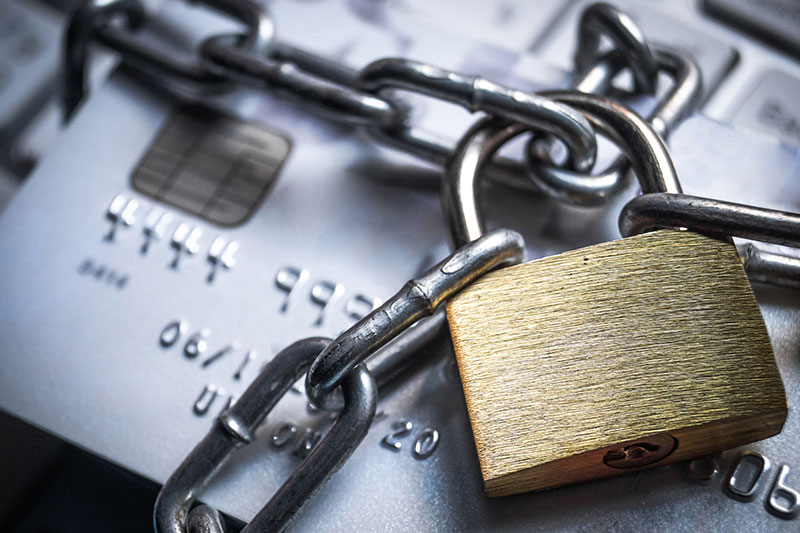Chris Andrews accidentally left his wallet containing his debit and credit cards in a cab. Since there wasn’t much cash, he was not unduly worried. After all, nobody could use his cards without his password, or so he thought.
But to his surprise, he lost money from his bank account and his credit card was also swiped for a huge amount. All this happened within the short while it took to report his missing cards to the bank. How did this happen?
When Chris went to lodge a police complaint, he learnt a few things from the cyber cell. When answering the cops’ questions, Chris realized that since his credit card was a chip-less one and needed the CVV number on the back to authorize
transactions, whoever got his card was able to use it. And because Chris didn’t remember his debit card PIN, he had written it down on a piece of paper, which he had kept in his wallet. This too proved costly as the fraudster was able
to withdraw money from his bank account as well.
Here are some valuable tips Chris learned about using his cards:
Never leave the CVV number exposed
The first thing you should do is memorise the number and blank it out, ideally with a black felt pen. This way, no one will be able to read it. And remembering the CVV number shouldn't be a problem. It is only three or, at the most, four digits,
after all.
Never write down PINs
You should never write down your debit card PIN, either on paper or even on your phone. Just memorise it. The best thing to do when you receive a new debit card is either go online or to the nearest ATM of their bank and change the bank-issued
PIN to something one can remember easily. Again, most often, a debit card PIN is a four-digit number and easy to remember. But don't change it to something obvious like your birthdate or the first four digits of your phone number. If the debit
card falls in the hands of someone who knows you well, that person would be able to guess it. The number should be such that it will have special significance to the cardholder but is not easily known to anyone else.
Set transaction alerts
Either log in to your Netbanking or go to your nearest bank branch and ensure that you set alerts for all transactions on both email and text messages. The service is free and will ensure that you would
be alerted instantly if there is an unauthorised transaction. That way, even if your card falls into the wrong hands and a transaction does take place, you will be able to call the bank and block the card.
Set limits on transaction values
Use your Netbanking account to set daily limits on transactions, withdrawals, and fund transfers. That way, even if fraud does take place, your exposure is limited. Unless you are a frequent traveller overseas, you should similarly block all international
transactions. That way, you will be protected from online fraud from international gangs. Remember, you can always change these settings when you want.
[Also Read: 5 Different Types of Credit Card Frauds in India]
Check your bank’s fraud protection service
Always check what kind of fraud protection your bank offers. Most banks offer it as a paid service. But the costs are pretty low. Think of these costs like paying for an extended warranty for a new phone or electronic appliance. It is worth it.
In case of theft or loss immediately block the card
If you lose your credit or debit card, call the bank's helpline as soon as you realise and block it. Also, go to the nearest police station and register a complaint and share it with your bank. This comes
in handy in case there is a dispute with the bank about fraudulent transactions.
While debit or credit cards are convenient and useful, the CVV number or PIN is like a lock on the door to your home. You wouldn't dream of leaving your house with the door unlocked. It is the same with CVVs or PINs. Don't provide easy access
to them. It is like handing out your house keys to random people. You are asking to be robbed.
Remember, Axis Bank employees will never ask for your PIN. Never disclose it to anyone. Axis Bank credit cards also come with the best-in-class fraud protection
cover. Visit us online to know more.
Disclaimer: The Source, a content creation and curation firm has authored this article. Axis Bank does not influence the views of the author in any way. Axis Bank and The Source shall not be responsible for any direct/indirect loss or liability incurred by the reader for taking any financial decisions based on the contents and information. Please consult your financial advisor before making any financial decision.







